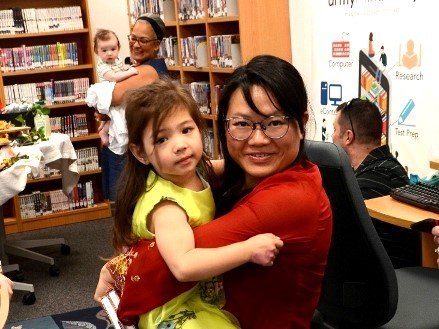The practice of postpartum Confinement, a cornerstone of many Asian cultures, has been passed down through generations for centuries. Rooted in ancient Chinese traditions, the period of rest and recovery has changed over time, yet its core principles remain steadfast.
The Origins of Postpartum Confinement: A Timeless Tradition
Postpartum care has long been a cornerstone of maternal recovery, with traditions stretching back across centuries and cultures. In the Chinese context, the practice of zuo yuezi (坐月子), or postpartum Confinement, plays a vital role in nurturing a new mother’s health and well-being after childbirth. But where did the practice begin? How did it grow, and what cultural beliefs shaped it?
The Origins of Postpartum Confinement
The concept of postpartum Confinement finds its origins in ancient China, dating back to the Imperial era. Much of the documentation we have today stems from records kept by imperial doctors and scholars, who were often the only literate members of society. Back then, childbirth was seen as a monumental life event and also as a process deeply entwined with cultural beliefs about health, luck, and purity.
Historically, postpartum recovery periods varied widely, depending on the dynasty and the prevailing medical guidelines of the time. For instance, during certain periods, the prescribed rest period could range from just a few days to several months, or even up to a year. The rationale behind extended recovery time was grounded in the belief that childbirth altered a woman’s constitution. As a result, she was thought to be more susceptible to long-term health issues if she didn’t rest and recover properly.

That belief in the necessity of rest after childbirth is still present today in many parts of East Asia. Businesses offering Confinement services, including specialized food delivery and herb preparation, cater to new mothers. They provide them with the necessary nutrition and care to restore their health. The emphasis on rest and recovery isn’t just a relic of the past—it’s a practice that has survived for good reason.
Cultural and Superstitious Beliefs Around Childbirth
While the practice of postpartum Confinement is grounded in medical tradition, it also has strong ties to cultural beliefs and superstitions. In ancient China, childbirth—and even menstruation—were viewed as inauspicious events. The process of giving birth was seen as unclean, and women were often sent away from their families and communities during labor.
The isolation, which originated during the Spring and Autumn period (722 to 481 BCE), was meant to protect others from the perceived negative energy surrounding childbirth.
Women in ancient China were often sent to remote huts or separate rooms to give birth, far from the rest of the household. The practice wasn’t limited to commoners—even women from noble families underwent isolation. In some cases, the social class hierarchy was suspended during childbirth, with women from different backgrounds sharing the same delivery spaces.
The isolation continued throughout the postpartum period. The emphasis was on physical rest and keeping the woman separate from the community due to the perceived impurity of childbirth.
Interestingly, this practice transcended class boundaries at times, with the wife of a government official potentially giving birth alongside the wife of a butcher. All that suggests that the societal rules surrounding childbirth were deeply ingrained in cultural beliefs rather than solely in class distinctions.
Postpartum Confinement in Modern Times
The evolution of postpartum Confinement continues to shape maternal care today. While the superstitions surrounding childbirth have largely faded, the core principle of zuo yuezi—rest and recovery—remains intact. The Confinement period is still considered key for a mother’s long-term health. In modern East Asia, Confinement centers and nannies provide professional care for new mothers, who focus solely on recovery while being supported by experts in maternal health.
Moreover, the medical benefits of postpartum Confinement are now better understood in terms of preventing infection and promoting healing. After childbirth, both the mother and baby are vulnerable to germs and illnesses. That risk of infection is reduced by minimizing exposure to others. In today’s world, the practice can be seen as both a cultural tradition and a practical measure for safeguarding maternal and infant health.

However, while the practice of postpartum Confinement has persisted through the centuries, it’s important to approach it with a modern lens. For example, the use of traditional Chinese herbs during the Confinement period should be done in consultation with healthcare professionals. Many women take medication for preexisting conditions or are prescribed postpartum treatments that may interact with herbal remedies. Consulting with a traditional Chinese medicine (TCM) practitioner who understands the interactions is necessary to guarantee a safe and healthy recovery.
Take the First Step Toward a Healthier, Happier Motherhood
It’s time to prioritize your well-being and unlock your full potential with the guidance of Dr. Kristal Lau. As a renowned postpartum wellness coach, MD, and mother of two, Dr. Lau combines her expertise in both clinical and conventional Chinese healthcare to help modern mothers like you thrive.

With over 13 years of experience in healthcare, research, and public health, she crafts personalized health plans tailored to your unique needs.
Don’t wait to begin your wellness journey. Book your free call with Dr. Kristal Lau today and take the first step towards a healthier, happier postpartum experience.
For more insights and expert advice, check out her podcast, The PostPartum Wellness Show, on Spotify, Apple Podcasts, and YouTube.
FAQs
How long does postpartum coaching typically last?
The duration of postpartum coaching varies based on individual needs. Some mothers may require support for a few months, while others may benefit from longer-term guidance as they navigate motherhood. Dr. Kristal Lau crafts flexible, tailored plans to accommodate each mother’s unique situation.
Is postpartum wellness coaching suitable for moms with older children?
Absolutely. Postpartum wellness is not limited to the immediate months after childbirth. Many mothers seek support years later, whether for continued health challenges, mental well-being, or lifestyle adjustments.
Can I participate in postpartum wellness coaching if I’m not experiencing any health problems?
Yes! Postpartum wellness coaching is beneficial even if you’re not facing specific health concerns. The focus is on optimizing your overall well-being, helping you maintain balance, improve energy levels, and improve your quality of life as a mother.
Do I need to be local to work with Dr. Kristal Lau?
No, Dr. Kristal Lau offers virtual coaching sessions, making it accessible for mothers anywhere. Through video calls and other virtual consultations, you can benefit from her expertise no matter where you are.
